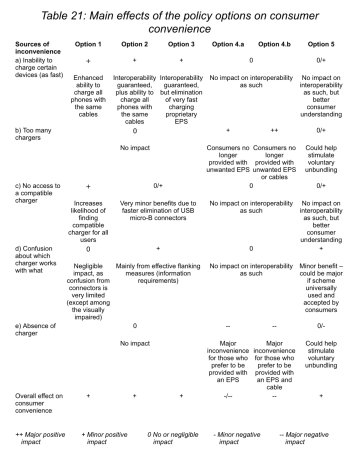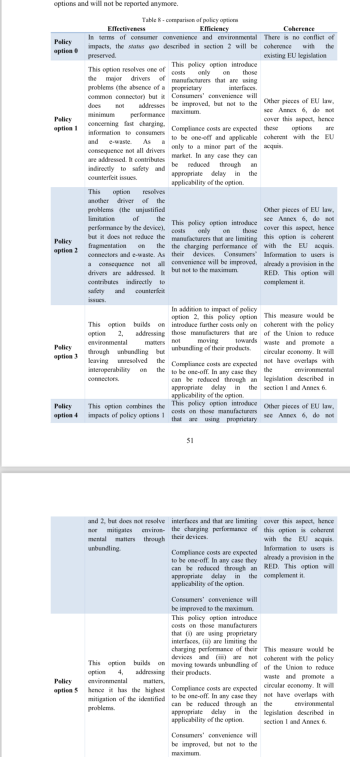Not much different than say, music. You may purchase it, and own the media its on. But, not the product.
Well here it is. You are free to remove DRM on software
I'm sure the information would be available online without having to purchase the product.
Sure, but it’s not the consumers job to procure the contract. The party who is responsible for the sale needs to supply the necessary documents and approval at point of sale.
This is where the disagreement would be at the last part of that sentence. "modify and sell if you want....".
Which taken literally would be I can purchase 10,000 iPhones. Modify them and resell it. I don't think many manufactures of any product would be ok with that. You can do to it as you like but, to resell it without restriction makes no sense to me. Might as well throw away patents, trademarks, copyrights, etc.
well no, you can purchase let’s say 10.000 iPhones but you will be treated as a business establishment.
The fundamental difference between ‘
implied licence’ that is used in UK and exists in USA and ‘
exhaustion of the rights’ is that in the former, there is no exhaustion of the iprs but with the distribution of the physical product, the iprs embedded is also licensed to the buyer unless such implied license is expressly barred through contract. In the case of the latter, the effect is rather automatic as soon as the iprs embedded product is put into any distribution channel, i.e. the right to enforce the iprs is exhausted irrespective of any contractual bindings.
The only possible difference between the doctrines of ‘
first sale’ in the USA and ‘
exhaustion’ in EU is that while the former is controlled by laws of contract for sale while the latter establishes out-right exhaustion without any possibility of opt-out.
And this has been the case for decades.
Just as we had a case with big impact
https://curia.europa.eu/juris/docum...1&doclang=EN&text=&dir=&occ=first&cid=2012237
Back to what I stated above. That would make no sense, and for Apple that litterally killed off clones back in the 90's. I'm sure it would make even less sense. Again, if you're doing this for yourself alone. OK. If you figure out a way to do it, sure enjoy. You can even post it on the internet to all that like to tinker. But to resell that? So what I can't keep a copy. How does the EU enforce that part? How do they know I didn't keep a copy of what I just hacked?
Well there was a company that did sell Mac clones and got away with it as they just purchased legitimate OS X on disk. And EU isn’t enforcing it, it means it’s just considered theft or piracy. How does USA enforce DMCA?
Apple tries to design a product (Hardware/Software) that is easy to use and offers a more simple approach to technology. One of those approaches is to minimize the risks. I personally wouldn't coin it babysitting, but to each is own. They have a different approach than others do. They don't want the user exposed and or having to manage some aspects of the system. If you want that level of access and control, you can pick Android.
It’s not babysitting, just how Mac can install software outside the store, and I can with some trickery(not jailbreaking)install software from outside the iOS AppStore. Apple is actively trying to stop me from doing that.
On the platform, sure. They do restrict it to just the AppStore. One way in. But they don't exist alone. It's a product they made the way they wanted it. People "picked" it over the open Android platform. Or not, and choose Android. You can get almost everything on each system. And moving data between them gets easier all the time. Even the apps you purchase tend to have user ID's so you can login into it again on an Android product and keep on rocking or vise versa.
There’s only one platform though. To use a car analogy: class 8 trucks( we just call them lastbil), buses, cars and bicycles are all classified as vehicles. They all compete on on the same marketplace. But in actuality it would be comical to argue passenger cars are competing with motorcycles or that bicycles are competing against trucks.
If a consumer have a car(iPhone) and a truck( Samsung). And the trailer and car have a wide variety of options when it comes to external spare part and accessories(Samsung galaxy s11 and iPhone 11) provided by a variety of companies( cases, screen protectors, cables etc)
But when it comes to the need to do work on the engine(the Operating system) the truck can have the engine replaced(android forks) replacement parts, modifications and accessories for the interior of the vehicle from approved suppliers or brand specific dealers by the different manufacturers(play store, galaxy store, Amazon AppStore etc)
But when it comes to the car(iPhone), it’s only through their approved dealers providing services and accessories only from their stores( Apple AppStore). Owners who tries to use unauthorised accessories, or purchase from the companies themselves are threatened with legal actions and actively prevent from doing anything.
The software and engine of the car (iOS) if it discovers unauthorised access will prevent it from working. You can buy Bluetooth speakers from the store and will work as it has software signatures connected to you, the car and Apple. But if you buy the same speakers outside the store(side loading)will discover it won’t connect or work unless you falsify the signature.
We don't need to compete within the same platform. If it was ONLY Apple, then yes. But, that isn't the case. Plus, with Android you can already add 3rd party stores AND side load. Hence why I say, if Apple left the EU market. All citizens would only have access to Android. Which covers all the bases the rules are demanding.
PLUS, if push really came to shove. I'm sure some really smart engineers in the EU could get together and create another fork of Android and have it compatible with all Android devices. Give it away if they want.
Well I think you should read what the implications are. EU have also a completely different philosophical understanding of what a market entails and what relevant parts are competing
Apple and Samsung phones are competing: as consumers choose to purchase the device they want.
Google android and Apple iOS aren’t competing: consumers can’t acquire iOS outside the product and neither install android on their iPhones
Google android and different android fork is competing: both consumers and businesses can acquire android of different forks.
Play store and Apple AppStore isn’t competing: as before a consumer can’t access the alternatives store without switching their main device and for a developer the targeted
The DMA defines when a large online platform qualifies as a “gatekeeper”. These are digital platforms that provide an important gateway between business users and consumers – whose position can grant them the power to act as a private rule maker, and thus creating a bottleneck in the digital economy and act independently from competition
It’s not just about consumer choice, but it’s also about market forces having a fair choice, if Apple still end up having 99.9% of the market that will be completely legal.
And
Oh we absolutely need competition within the same platform. The thing you’re missing is that android and iOS aren’t competing or compatible. People don’t purchase android or iOS, but iPhones, Samsung, pixel, Huawei etc
On the same platform, correct. They don't want that. However, you can create a web-app. As Microsoft has done with their Xbox gaming cloud (whatever they call it). Otherwise, you as a user can pick a device that does allow it. Again, you don't have to pick iOS.
I very much hope they put future plans on hold in the EU.
You get stuck on users, but it’s a mixture of business and user interaction.
These obligations will help to open up possibilities for companies to contest markets and challenge gatekeepers based on the merits of their products and services, giving them more space to innovate.
When a gatekeeper engages in practices, such as favoring their own services or preventing business users of their services from reaching consumers, this can prevent competition, leading to less innovation, lower quality and higher prices.
When a gatekeeper engages in unfair practices, such as imposing unfair access conditions to their app store or preventing installation of applications from other sources, consumers are likely to pay more or are effectively deprived of the benefits that alternative services might have brought.
Web apps aren’t able to do anything of substance on the device and not a viable alternative.





